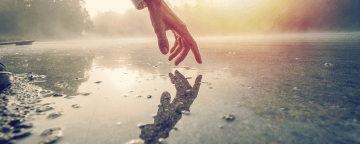Bob Grant in The Scientist:
 The past couple of months have been heavy for us at The Scientist. Heavy for everyone. From our home offices, we’ve been tirelessly reporting on the global pandemic that continues to grip the world in its stranglehold. We are trying to stay atop a flood of information and stories that need telling as we also contend with challenges that most of us have never confronted, and none of us will likely soon forget. At the same time, we continue to search across the life sciences for other nuggets of research worth sharing. This month, our issue is focused on the science of memory. Our memories make us who we are, subconsciously driving our behaviors and dictating how we view the world. One of the most interesting things about memory is its imperfection. Rather than serving as a precise record of past events, our memories are more like concocted reflections, filtered and distilled from pure reality into a personal brew that is formulated by our own unique physiologies and emotional backgrounds. The wholly unique universe we each create—separate from but still tethered to the actual universe—is the product of electrical signals zapping through the lump of fatty flesh inside our skulls. Biology gives birth to something that exists outside the boundaries of biology.
The past couple of months have been heavy for us at The Scientist. Heavy for everyone. From our home offices, we’ve been tirelessly reporting on the global pandemic that continues to grip the world in its stranglehold. We are trying to stay atop a flood of information and stories that need telling as we also contend with challenges that most of us have never confronted, and none of us will likely soon forget. At the same time, we continue to search across the life sciences for other nuggets of research worth sharing. This month, our issue is focused on the science of memory. Our memories make us who we are, subconsciously driving our behaviors and dictating how we view the world. One of the most interesting things about memory is its imperfection. Rather than serving as a precise record of past events, our memories are more like concocted reflections, filtered and distilled from pure reality into a personal brew that is formulated by our own unique physiologies and emotional backgrounds. The wholly unique universe we each create—separate from but still tethered to the actual universe—is the product of electrical signals zapping through the lump of fatty flesh inside our skulls. Biology gives birth to something that exists outside the boundaries of biology.
…What scares me most at this juncture in world history is how the COVID-19 pandemic will live in the memories of those affected by it. The patchiness of the current global predicament will dictate our individual familiarity with the ravages of SARS-CoV-2. Some will remain largely unscathed by illness, many will feel the economic pinch of societal lockdowns, many will also lose friends or loved ones to the virus, others will succumb to it themselves. No one will emerge unchanged.
More here.
